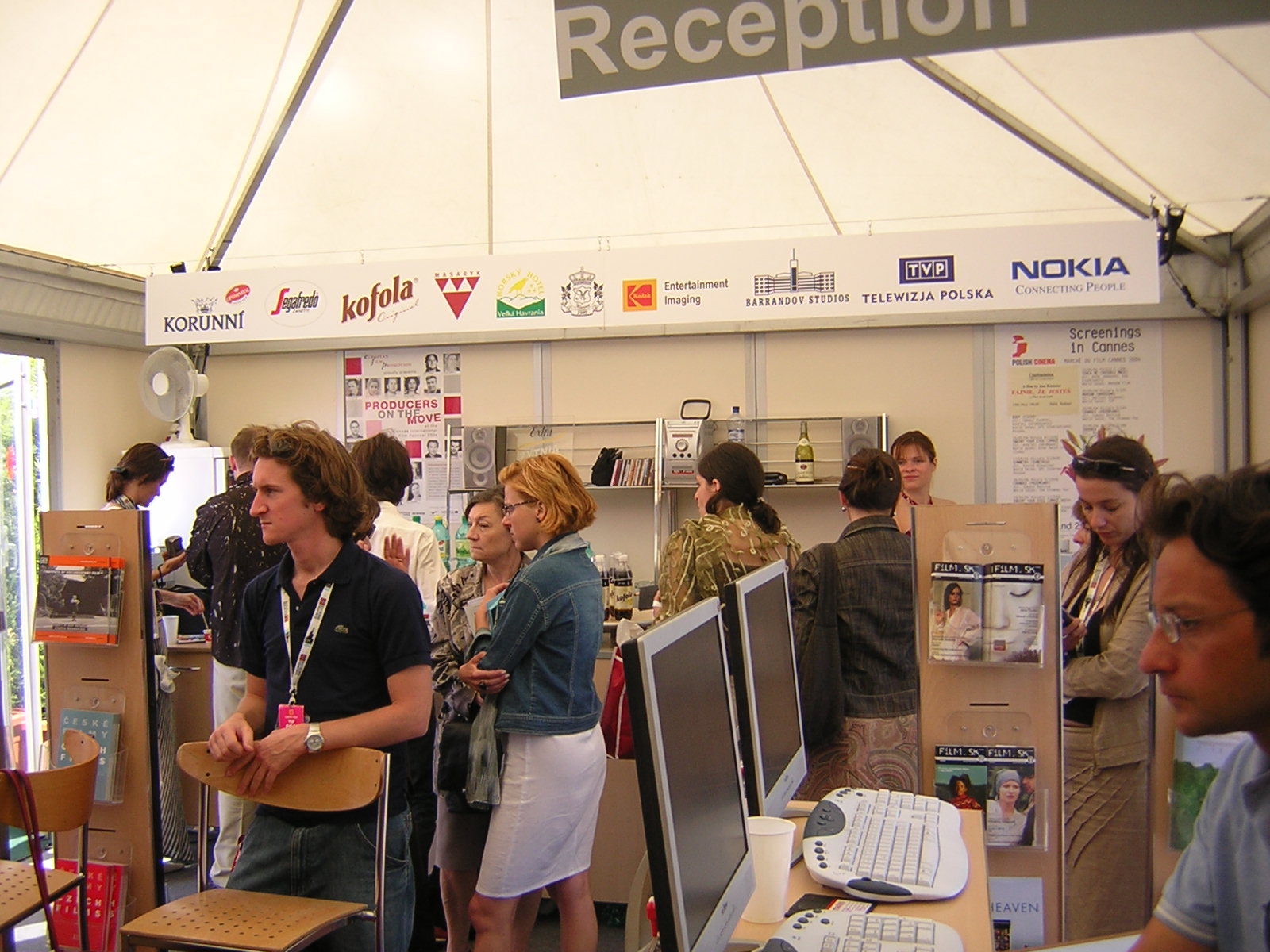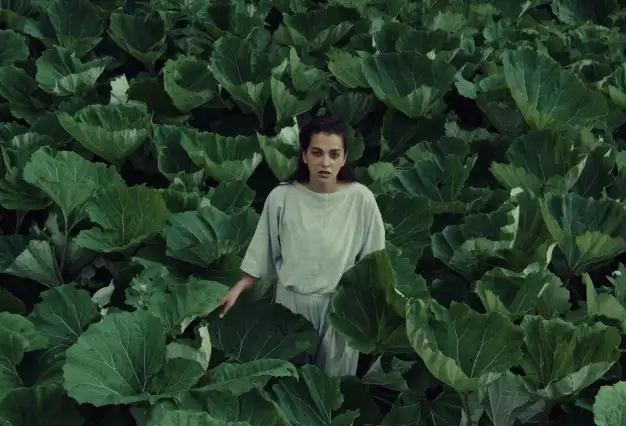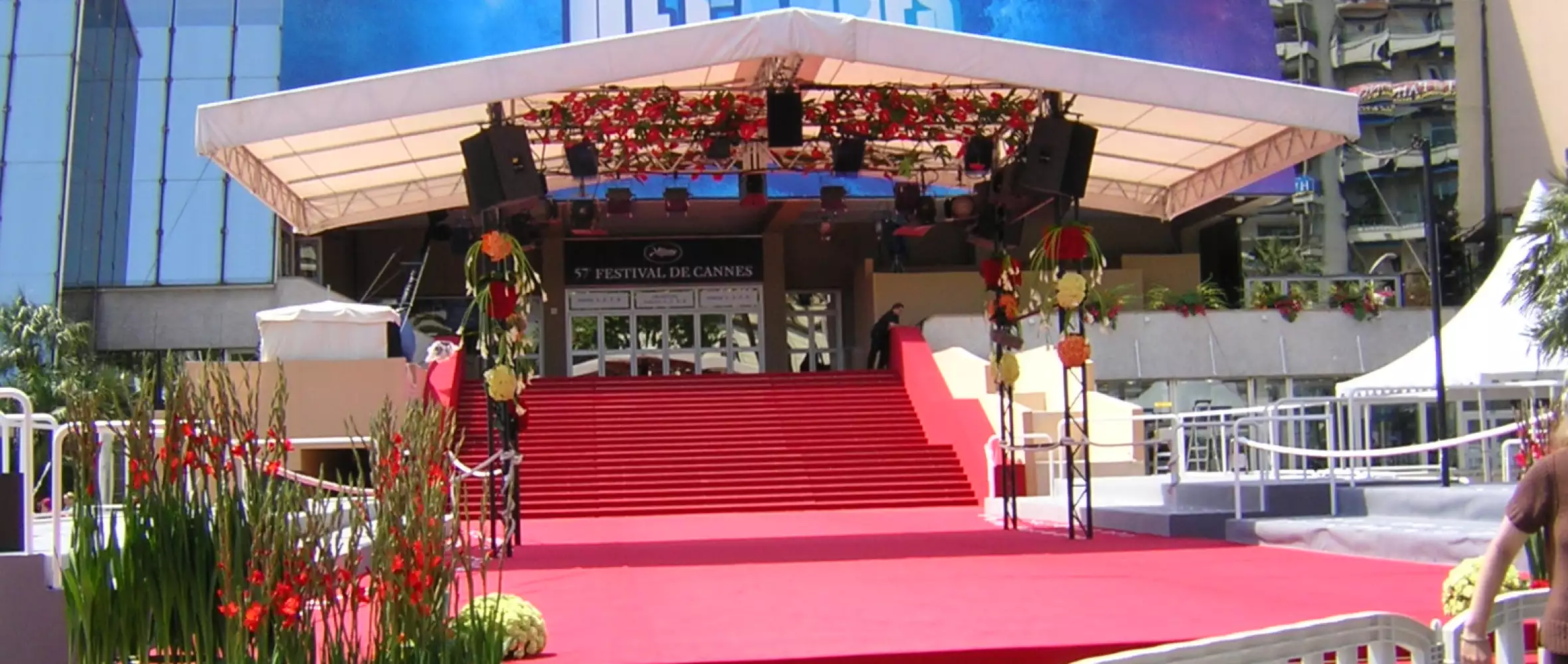
10 May 2024
Two decades of Czech cinema on the global stage
Two decades of Czech cinema on the global stage

This year marks the 20th anniversary of the Czech Republic’s participation in the Festival de Cannes’s Marché du Film, a key networking hub that connects film industry professionals globally. This milestone highlights the resilience of Czech cinema and its progress in gaining international recognition and fostering creative partnerships.
Article by Martin Kudláč for CZECH FILM / Summer 2024
The origins of the Czech pavilion in the international village at the Festival de Cannes date back to 2004, the year the Czech Republic joined the European Union. Situated in the bustling heart of the festival along La Croisette, the pavilion serves as a vital information hub where film professionals can learn about both the latest developments and the future outlook in the Czech audiovisual industry.
The Czech Film Center, which has consistently managed the pavilion’s operations, plays a crucial role in showcasing Czech cinema at the Marché du Film. Established in 2002 to represent, market, and promote Czech cinema and the Czech film industry, the CFC introduces domestic films and talents to the international film community and highlights opportunities for coproductions. Meanwhile the Czech Film Commission promotes the country to international filmmakers, positioning it as one of the top global destinations for film production. All of these ongoing efforts ensure the active participation of Czechs in the worldwide cinematic dialogue.
“The Cannes festival presents an invaluable opportunity each year to engage with our international counterparts, including film festival programmers, sales agents, film fund representatives, and other film professionals from around the globe,” said Markéta Šantrochová, head of the Czech Film Center. “We present films for festival programs and introduce film projects to potential coproducers at coproduction markets. We also keep abreast of developments in other countries.”
Both the Czech Film Center and the Czech Film Commission have operated since 2017 as divisions of the Czech Film Fund, the country’s main public financing body for cinema. Established to enhance the competitiveness of Czech audiovisual works abroad, the CFF manages opportunities for funding domestic and international collaborations, supporting a wide array of initiatives.
In fact all of the institutions pivotal to developing the Czech film industry are marking significant anniversaries this year. The Czech Film Center and the Czech Film Commission are both celebrating two decades of operation, while the Czech Film Fund is commemorating its tenth year. These milestones underscore their continued influence and contribution to the international stature of Czech cinema.
Initially, the Czech Film Center’s participation in the Marché du Film was made possible through support from the industry associations that established the Czech Film Center—most importantly, the Audiovisual Producers’ Association. Pavel Dostál, then minister of culture, also played a crucial role in facilitating the country’s first engagement in the market.
The inaugural Czech exhibition at the market, in 2004, featured such notable figures as Eva Zaoralová, a doyenne of Czech film criticism and longtime artistic director of the Karlovy Vary IFF, who served on the jury of the Un Certain Regard section at Cannes. That same year, Miloš Forman, the renowned Czech-born director, was honored with the Order of the Legion of Honor, France’s highest order of merit, bestowed by the country’s minister of culture.
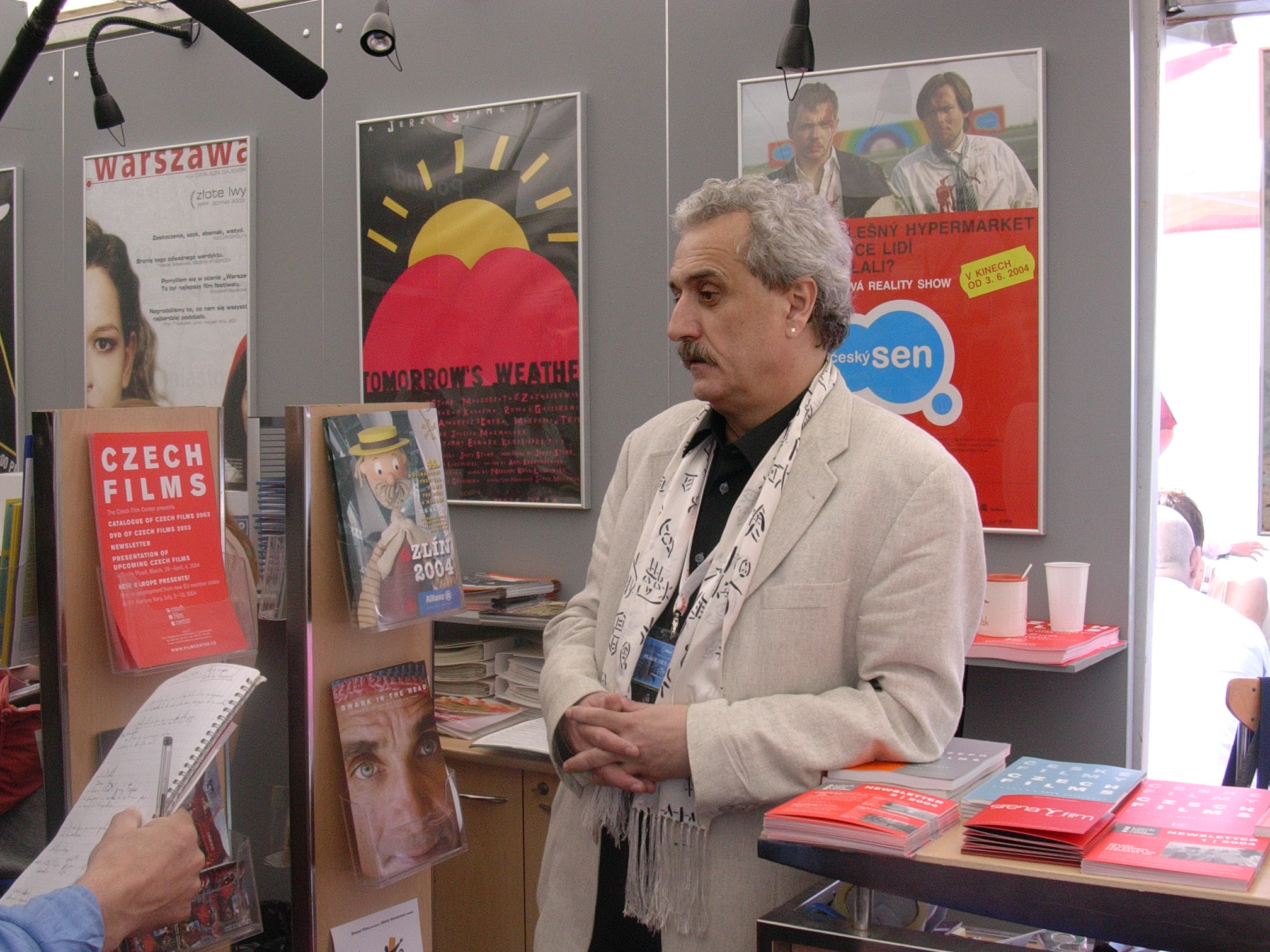
Talents on the move
Over the past 20 years, the Czech presence at Cannes has showcased a mix of emerging and veteran film professionals. One significant highlight for Czech filmmakers has been their involvement with the Cinéfondation, an initiative that supports young talent by showcasing short films produced by film students worldwide. Since its inception in 1998, Cinéfondation has played a pivotal role in nurturing new generations of filmmakers.
Among the Czech filmmakers whose early works have been highlighted at Cinéfondation are Zuzana Kirchnerová, Michal Hogenauer, Michal Blaško, Ondřej Erban, Tomáš Klein, and Daria Kashcheeva. Each of these directors has either transitioned from showcasing their short films to having feature films circulate on the international festival circuit, or is on the verge of doing so.
Kashcheeva, in particular, has continued her ascent in the industry, having been selected as one of six filmmakers for this year’s running of the Cannes festival’s Résidence. This comes on the heels of her fellow Czech animation talent, Diana Cam Van Nguyen’s stay at the residency in 2023. These selections underscore the ongoing contribution of Czech cinema to the global film industry, particularly in fostering talent that resonates on an international level.
The Festival de Cannes’s parallel section ACID, managed by France’s Association for the Diffusion of Independent Cinema, has for years been introducing Czech films made in French coproduction to an international audience. Notable among them have been Petr Václav’s social drama The Way Out (2014) and Artemio Benki’s directorial debut, Solo (2019). Benki, a Prague-based producer with French origins, has facilitated several high-profile Czech-French collaborations, with his company Sirena Film having coproduced Olivier Assayas’s Personal Shopper, which screened in the main competition in 2016; Stéphanie Di Giusto’s The Dancer, showcased in Un Certain Regard, also in 2016; and Sharunas Bartas’s In the Dusk, chosen for the official selection in 2020.
Other Czech producers who have had projects selected for the Cannes official program include Jiří Konečný of endorfilm, who collaborated on Gyorgy Kristof’s debut, Out; Axman Production’s Karla Stojáková, who coproduced Agnieszka Smoczyńska’s Fugue; and MasterFilm’s Dagmar Sedláčková, a coproducer of Maksym Nakonechnyi’s Butterfly Vision.
The festival has also honored Czech cinematic heritage through the Cannes Classics sidebar, which features premieres of restored films. This recognition has included such legendary works as Jindřich Polák’s cult sci-fi film Icarus XB1, Miloš Forman’s Loves of a Blonde, Vojtěch Jasný’s The Cassandra Cat, and Věra Chytilová’s feminist comedy Daisies, underscoring the enduring legacy and influence of Czech cinema internationally.
From the industry point of view as well, Czech producers have an outstanding track record at Cannes. Celebrating its 25th anniversary this year, the Producers on the Move initiative, spearheaded by European Film Promotion (EFP), underscores the dynamic and collaborative spirit of European cinema. And the Czech Republic’s participation since its entry into the EFP network in 2002 has been nothing short of transformative, showcasing the ingenuity and resilience of Czech producers on an international stage. With the exception of one year, Czech producers have been part of every edition.
Czechs selected for Producers on the Move include producers from the middle generation who are now at the head of established companies—Pavel Strnad of Negativ; Bionaut’s Vratislav Šlajer, who also serves as president of the Audiovisual Producers’ Association; Martin Vandas of animation powerhouse MAUR film; and endofilm’s Jiří Konečný—as well as producers of the young generation, like Radovan Síbrt of PINK, Tomáš Hrubý of nutprodukce, Xova Film’s Marek Novák, Vladimír Lhoták of Hausboot, and Cinémotif Films’ Kristýna Michálek Květová. This growing list not only celebrates the individual achievements of each producer in their burgeoning careers, but also highlights the collective progress of Czech cinema toward recognition and influence beyond the country’s borders.
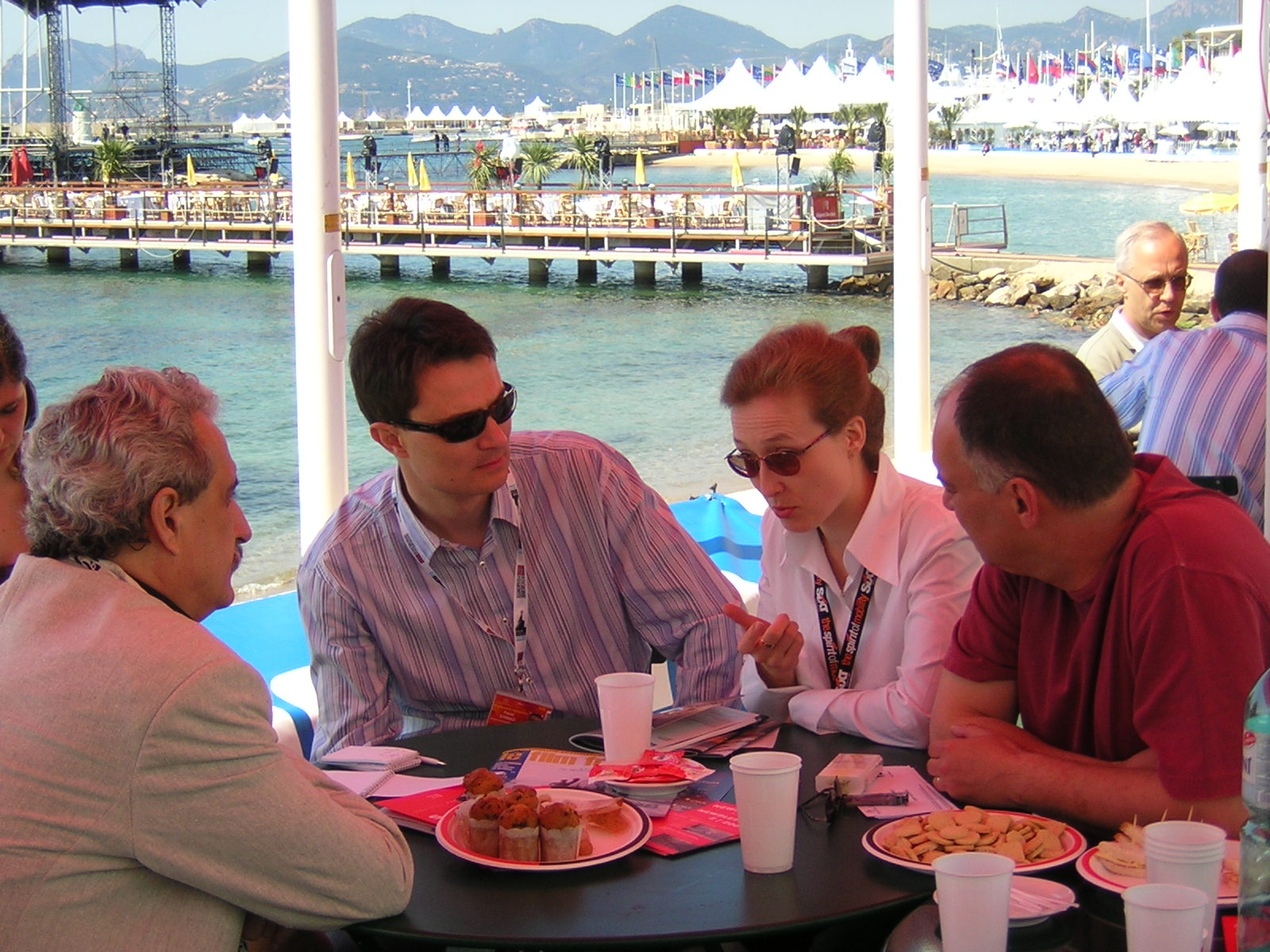
The future will be audiovisual
From 2004 to 2024, the Czech film industry has been characterized by perseverance and innovation. The collaborative efforts of the Czech Film Fund, Czech Film Center, and Czech Film Commission have significantly bolstered the industry, resulting in a robust domestic ecosystem that facilitates the creation, promotion, and distribution of Czech cinema.
This has resulted in increasing global recognition, with substantial exposure for Czech works at international film festivals, from Latin America to Asia. Recent years in particular have highlighted the prominence of Czech animation, confirming it as the country’s largest export commodity in the film sector. This success underscores the effectiveness of Czech initiatives in nurturing its cinematic talents and showcasing them to the worldwide film community.
Of course the Czech Republic has also established itself as a leading location for major international and Hollywood productions, including streaming giants as well. A notable example is Netflix’s All Quiet on the Western Front, which was shot entirely in the Czech Republic, and has received nine Oscar nominations, with four nominations recognizing the contributions of Czech professionals. The movie collected four Oscar statuettes.
The high demand for shooting in the Czech Republic underscores the country’s capabilities and reputation as a top filming destination, attracting a steady flow of international projects that benefit from the expertise and facilities offered by the Czech film industry and its sustainable infrastructure.
The demand for filming in the Czech Republic is robustly supported by the Czech Film Commission, which offers consultation, guidance, and essential contacts to incoming filmmakers. Recently, the Czech Film Commission was shortlisted for the Best Film Commission at the Global Production Awards 2024, following a nomination for Outstanding Film Commission at last year’s Location Managers Guild Awards.
As the film industry undergoes dynamic changes globally, the Czech Republic is well poised to adapt to these shifts, having undergone significant transformations—namely, the adoption of a new audiovisual law, under which the Czech Film Fund and its divisions, the Czech Film Center and the Czech Film Commission, will be integrated under the aegis of the new Czech Audiovisual Fund. This move is intended to streamline efforts and resources to more effectively support the growing demands of the industry.
One of the initial measures announced as part of this transformation is the requirement for global streaming platforms to contribute 2 percent of their annual revenues from the local market to Czech audiovisual production. This mandate will also apply to domestic video-on-demand services, which are expected to increase their contributions. These changes are designed to enhance funding for film and series production within the Czech Republic.
Furthermore, the new Czech Audiovisual Fund will expand its support beyond the current focus on cinema and film infrastructure to include small-screen and episodic projects, as well as the videogame industry, which is among the fastest-growing sectors in the country. This evolution of the Fund reflects the industry’s adaptability and its ongoing commitment to maintaining relevance and resonance in a rapidly changing global landscape.
